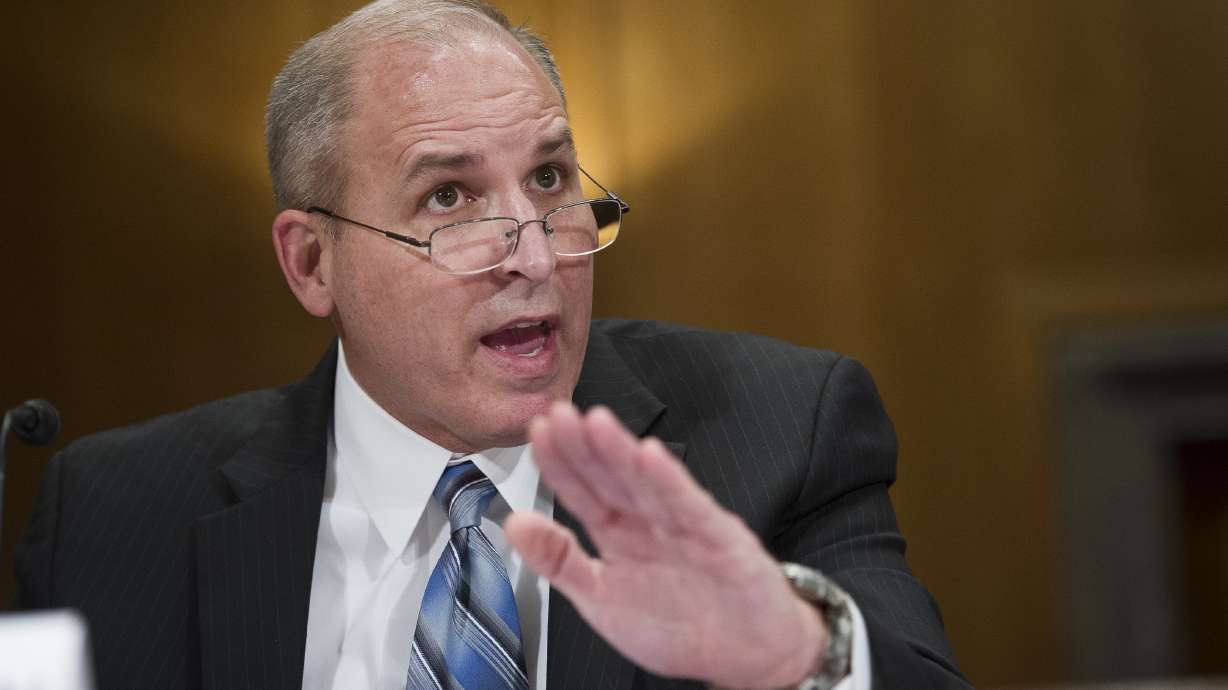Estimated read time: 3-4 minutes
This archived news story is available only for your personal, non-commercial use. Information in the story may be outdated or superseded by additional information. Reading or replaying the story in its archived form does not constitute a republication of the story.
WASHINGTON (AP) — The new top immigration official signaled Tuesday his agency is looking to step up deportations of families who are in the United States illegally, actions that would likely run into logistical hurdles and face strong public opposition.
Mark Morgan, acting director of U.S. Immigration and Customs Enforcement, said the agency would continue to prioritize deportations of people who have criminal histories, but that no one should be exempt from enforcement.
"That will include families," he said at a roundtable with ICE officials and reporters.
The comments by Morgan, who took over the position last week, show a willingness to embrace a part of President Donald Trump's tough immigration agenda that past officials had balked at. Morgan is a former head of Border Patrol who was fired by Trump early in his presidency, but then returned to his good graces after regularly defending Trump's immigration policies on Fox News.
ICE is the agency tasked with enforcing immigration law in the interior of the U.S. Part of its mission is to arrest immigrants in the U.S. illegally.
More than 200,000 migrant families have been released into the country since Dec. 1. A massive backlog of immigration cases means they will be in the country for years before their cases are decided. Morgan said generally people who have been ordered removed by a judge stop showing up for court dates, meaning ICE officers must search for them in order to deport them.
It's a difficult effort. There is little room to detain families while they wait for travel papers to be deported — federal family detention centers can house up to about 2,500 people, but are already full. Children cannot be detained longer than 20 days, which means ICE officers would need to have much of the paperwork completed before they took a family into custody or risk having to release them and lose them into the interior again.
ICE resources, much like other border agencies, are strained. They are detaining about 52,000 single adults but are funded for only 45,000. Minors who cross the border alone are turned over to Health and Human Services, which manages their care.
And the treatment of children and families in government custody has been a continued political flashpoint , after the Trump administration separated children from parents at the southern border last year. The move prompted outrage and criticism that the U.S. was abandoning its humanitarian role and harming children.
Morgan on Tuesday called on Congress to OK the $4.5 billion in supplemental funding requested by Acting Homeland Security Secretary Kevin McAleenan to fund bed space and humanitarian aid for strapped border facilities. He said a lack of law change by Congress has exacerbated the border problems.
On Monday, Congress sent a $19.1 billion disaster aid bill to Trump for his signature, but lawmakers failed to agree on Trump's $4 billion-plus request to care for thousands of mostly Central American migrants held at the border, so that money was not included.
"Congress has absolutely failed in this area," Morgan said. "It's unsustainable and nobody should want this."
Immigration has deadlocked the Democrats and Republicans for decades, but Trump's hardline efforts and border wall push have only exacerbated the divide, especially after the Trump administration separated more than 2,500 children from their parents at the border as part of its zero tolerance policy to prosecute anyone caught crossing the border illegally.
But in recent months, more than 100,000 people have been crossing the border, highs not seen for more than a decade, when the people coming were mostly men from Mexico who were easily returned over the border.
Copyright © The Associated Press. All rights reserved. This material may not be published, broadcast, rewritten or redistributed.









